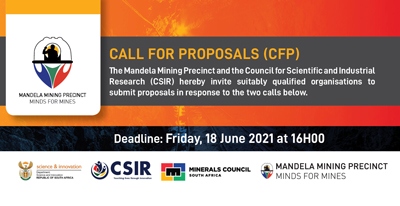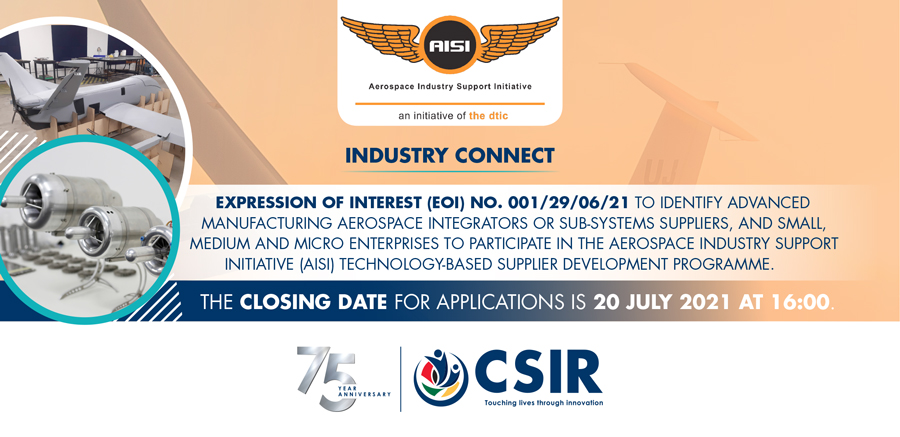Advanced Search
Search Results
The study considered the impacts of climate change and extreme weather events, which impact on coal supply to power stations.
The BIDC is a CSIR initiative, in partnership with the Department of Science and Innovation (DSI) and BioPark @ Gauteng (The Innovation Hub) would like to support Small, Medium and Micro-sized Enterprises (SMMEs) in the bio-manufacturing sector, with the aim of creating or expanding bio-manufacturing activity and associated job creation. CSIR and BioPark will partner to deliver a full package to SMMEs, as part of the mentorship programme.
The DSI-CSIR Photonics Prototyping Facility (PPF) invites expressions of interest (EOIs) from small, medium and micro enterprises, established private companies, and higher education institutions.
The CSIR mechanical testing laboratory, which was established in 1935, houses two of the largest mechanical testing machines in South Africa, which accommodate large-load test specimens such as min
The CSIR-hosted National Centre for Nanostructured Materials (NCNSM) focuses on the modelling, synthesis, characterisation and fabrication of new and novel nano-structured materials with specific p
The National Programmes portfolio supports national and continental research and development initiatives at research organisations, higher education institutions (HEIs), and stakeholders in the pub
The CSIR’s geophysics team uses high-resolution geophysical tools, such as 3D and 2D ground-penetrating radar, borehole radar and electrical resistance tomography to address a range of pertinent mi
The CSIR is working closely with the City of Johannesburg in establishing low-carbon development zones with waste to energy and renewable-energy powered mass transport systems.



